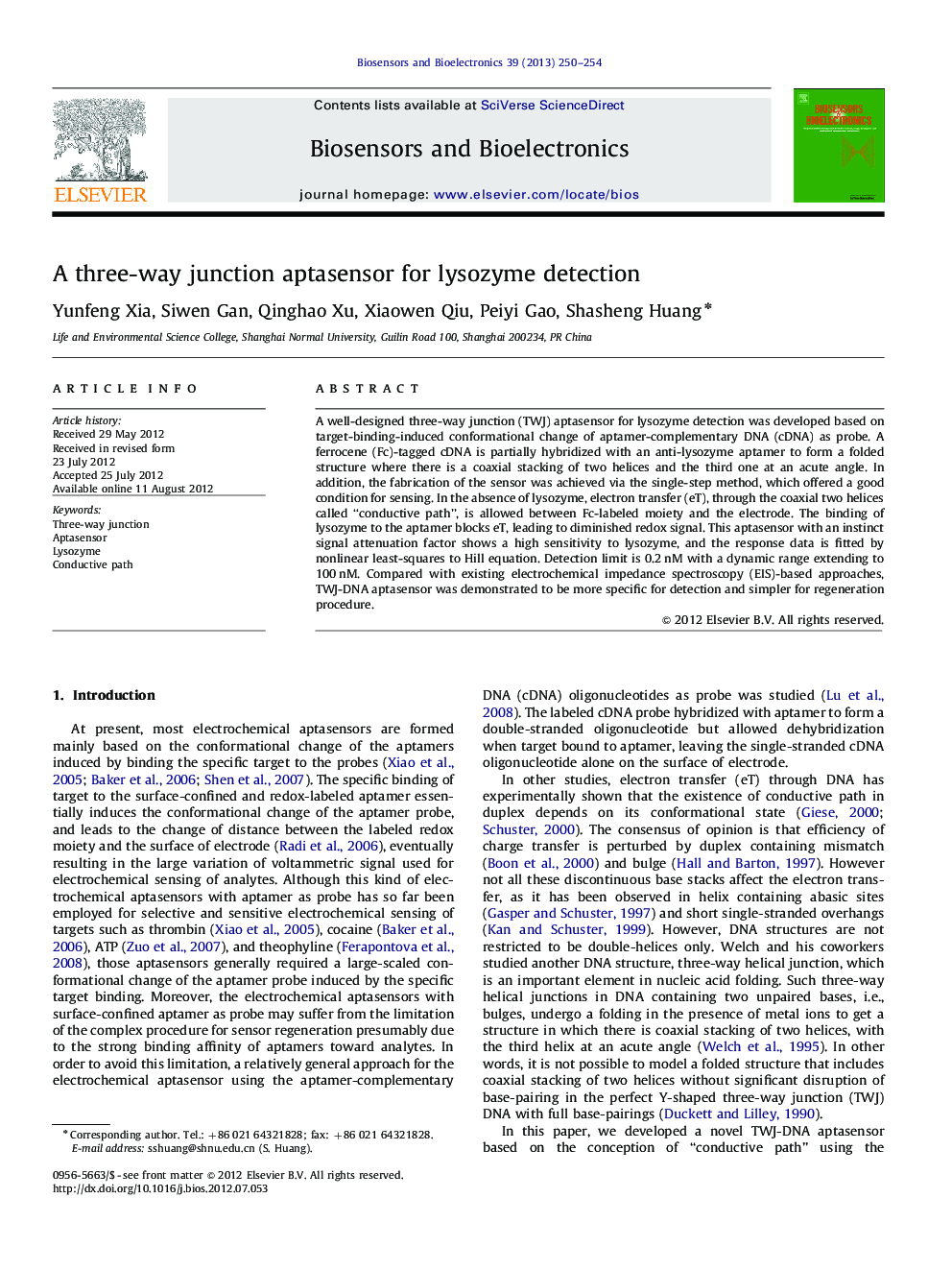| کد مقاله | کد نشریه | سال انتشار | مقاله انگلیسی | نسخه تمام متن |
|---|---|---|---|---|
| 867238 | 909779 | 2013 | 5 صفحه PDF | دانلود رایگان |

A well-designed three-way junction (TWJ) aptasensor for lysozyme detection was developed based on target-binding-induced conformational change of aptamer-complementary DNA (cDNA) as probe. A ferrocene (Fc)-tagged cDNA is partially hybridized with an anti-lysozyme aptamer to form a folded structure where there is a coaxial stacking of two helices and the third one at an acute angle. In addition, the fabrication of the sensor was achieved via the single-step method, which offered a good condition for sensing. In the absence of lysozyme, electron transfer (eT), through the coaxial two helices called “conductive path”, is allowed between Fc-labeled moiety and the electrode. The binding of lysozyme to the aptamer blocks eT, leading to diminished redox signal. This aptasensor with an instinct signal attenuation factor shows a high sensitivity to lysozyme, and the response data is fitted by nonlinear least-squares to Hill equation. Detection limit is 0.2 nM with a dynamic range extending to 100 nM. Compared with existing electrochemical impedance spectroscopy (EIS)-based approaches, TWJ-DNA aptasensor was demonstrated to be more specific for detection and simpler for regeneration procedure.
► A three-way junction DNA structure as sensing device is fabricated.
► Electrochemical signal afforded by Fc labeled on cDNA decreases with increasing concentration of lysozyme.
► The TWJ-DNA aptasensor has a larger signal attenuation factor than normal duplex one.
► Detection limit is 0.2 nM with a dynamic range extending to 100 nM.
Journal: Biosensors and Bioelectronics - Volume 39, Issue 1, 15 January 2013, Pages 250–254